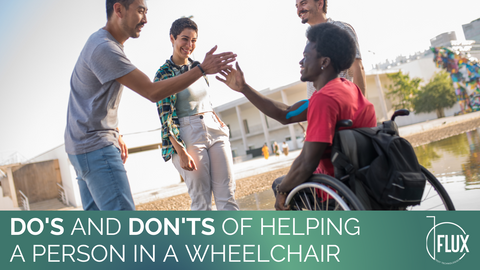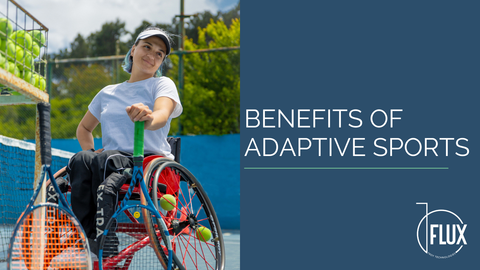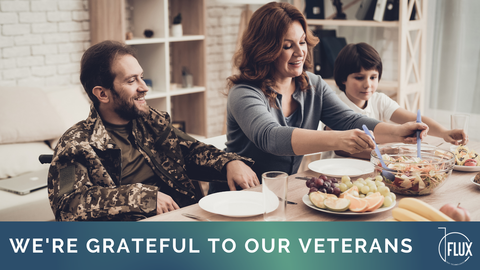When you were a kid, did a parent ever tell you, “don’t stare,” when you saw a differently-abled person? Though well-intentioned, that commonly taught form for manners implies “don’t talk to,” “don’t interact with,” or “ignore” people who are different from you. It created a society of people who don’t know how to interact with people who are differently-abled. From being condescended to by strangers to being flat-out ignored, there are a plethora of uncomfortable and offensive situations that a person in a wheelchair might face whenever they leave the house. And as always, we are here to help educate so people might avoid being the cause of one of those situations.
We like to assume that most people are good; that when the average person sees someone in need, they will gladly offer help. But sometimes when it comes to the differently-abled community, there are misconceptions and maybe even some confusion. So we made a list of Dos and Don'ts when it comes to offering help to a person in a wheelchair.
DO:
- Offer help! Speak to someone in a wheelchair like you would anyone else if you saw them struggling, “Hey, you need a hand with that?” “Hi! Can I help?”
- Ask “what’s the best way for me to help you?” Don’t assume that they need your help.
- Make eye contact…. Like you would anyone!
- Acknowledge any assistance animals.
- Think before you speak. People with disabilities are people, remember that when speaking to them.
DON’T:
- Offer help over and over. If the person you see struggling declines help, refrain from pressuring them. Even if a task may take them longer, their independence is important to respect.
- Help without asking or being asked first. Assuming a differently-abled person is incapable of a task is rude and acting on it takes away their independence.
- Act like a savior for helping- that’s ableist behavior.
- Ignore the person struggling. Or ignore their disability.
- Acknowledge any service animals before acknowledging the person!
- Ask personal questions you wouldn’t ask a regularly-abled person.
For most people with disabilities, independence is something they fight to preserve every day. Being aware and respectful of that is a kindness anyone can offer. But that doesn’t mean we don’t all need help at times. It’s important to be conscientious about our differences without treating people differently, which means offering help and being compassionate. As a society, we don’t wholly understand how to interact with people who look or move differently than we do. And part of that is how we were raised. So maybe, as we raise these next generations, instead of telling our children not to stare at a child with disabilities, we encourage them to smile or introduce themselves. This will create a future where we are all just people, our differences inconsequential. As grown-ups, our job is to be aware of our own ableist mentalities and behaviors and to do our best to educate ourselves and those closest to us on how to be allies for the differently-abled. Because “helping” those with disabilities isn’t just about reaching the cereal on the top shelf, or opening doors; it’s about shaping our world into a friendlier and more accessible place.




